“Do you ever wonder how many times your life is going to end?”
So asks Lauren Mazzio ’18 at the conclusion of Annie Baker’s “Circle Mirror Transformation,” directed by Alex Casey ’18. It’s moments like these that illustrate the beauty of a play that is grounded in human relationships. “Circle Mirror,” this year’s benefit-driven Spotlight production, ran from Jan. 19 to 21 in the Black Box Theatre. The show brilliantly captures life-altering moments in a quick character-driven sequence that revels in the awkward, the hilarious, and the mundane.
Set in Vermont, the play focuses on a group of five individuals taking a creative drama class led by the warm and genuine Marty, played by Emma Ditzel ’18. The class’s acting exercises explore the beauty of the mundane, especially through class participants like Lauren, played by Mazzio with an uncannily impressive teenage physicality. Bringing a flavor of awkwardness, Joe Doyle ’20 portrayed a recent divorcee named Schultz in the class. Interpreted with masterful subtlety by Jenny Meigs ’20, aspiring actress Theresa out-qualified most in the class. Finally, David Hutchins ’18 brought nuance to Marty’s husband, James.
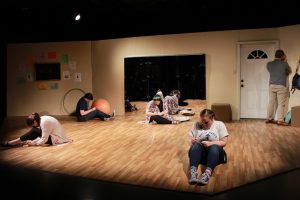 The show’s activities find the characters counting to 10, reenacting childhood memories, and retelling daily stories. Spanning across six weeks, this class is the only place these characters intersect. In that short amount of time, audiences observed the personal growth of each person. The directing and acting highlighted the choice to focus on this growth through the mundanity of daily life and interpersonal relationships.
The show’s activities find the characters counting to 10, reenacting childhood memories, and retelling daily stories. Spanning across six weeks, this class is the only place these characters intersect. In that short amount of time, audiences observed the personal growth of each person. The directing and acting highlighted the choice to focus on this growth through the mundanity of daily life and interpersonal relationships.
“What I think is so special about the boring acting exercises in this play is that they’re not entirely meant to be just acting exercises. They’re meant to convey the personal relationships, characteristics, and attitudes for the characters,” Mazzio said. “As the show goes on, Lauren opens up and allows herself to be vulnerable and go with the exercises.”
It was the tangible chemistry between the cast that made the show so enjoyable for the cast and crew to perform.
“The incredible acting and direction gave life to the script to emphasize the relationships between people and human condition,” Caitlin Dwinnell ’20, the sound designer of the show, said.
In fact, Ditzel thinks the bond was crucial for the success of the show.
“I think it’s really important to have a sense of cohesion between the cast, crew, and designers because ultimately theatre is a really collaborative process and you want to be around people you can trust,” she said. “It became a very good environment to work in.”
Typical of a Spotlight production, this student-led performance served for the benefit of others. For frame of reference, last year’s showing of “Wit,” which centered on a cancer patient, benefitted cancer organizations.
“The proceeds from the show went to the 29th Street Community Center right off York Road,” Casey said. “I wanted to avoid some of the disconnect that happens when donating to a big organization where you may not know where the money is going.”
The 29th Street Community Center aims to “build and strengthen neighborhoods and people by bringing together residents of north central Baltimore through meaningful community building and high-quality enrichment programming for all ages and background,” according to their website.
This show was the final Spotlight performance for Ditzel, and the selection of the 29th Street Community Center as the recipients of her work helped to close her Spotlight Players career on a high note.
“It was bittersweet because this was my third time acting in Spotlight and it’s just so rewarding to do something for a cause that you’re so passionate about and that you know your director is really passionate about and [it’s] so great to create and foster an environment created by and for students,” she said.
“I wanted to pick something more local with an immediate impact on the community. And since they were so close, I was able to visit them and I got to meet the kids, who were very nice,” Casey said. “Community centers are usually underfunded and even under-appreciated. Many families rely on them for an escape and to be an outlet for creativity,” Casey said.
The connection parallels one of the central themes from the play: the power of theatre and its ability to unlock truths and meaning in daily life.








































































































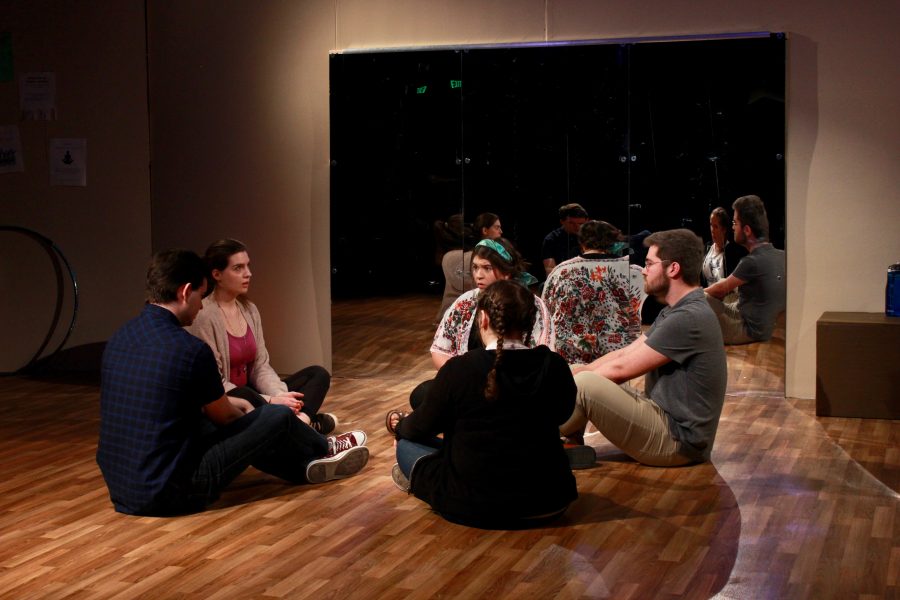






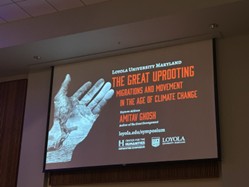
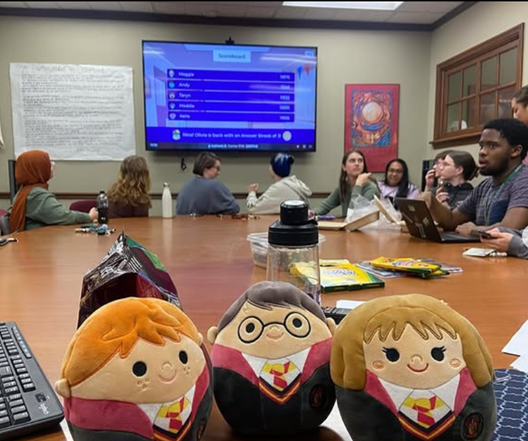
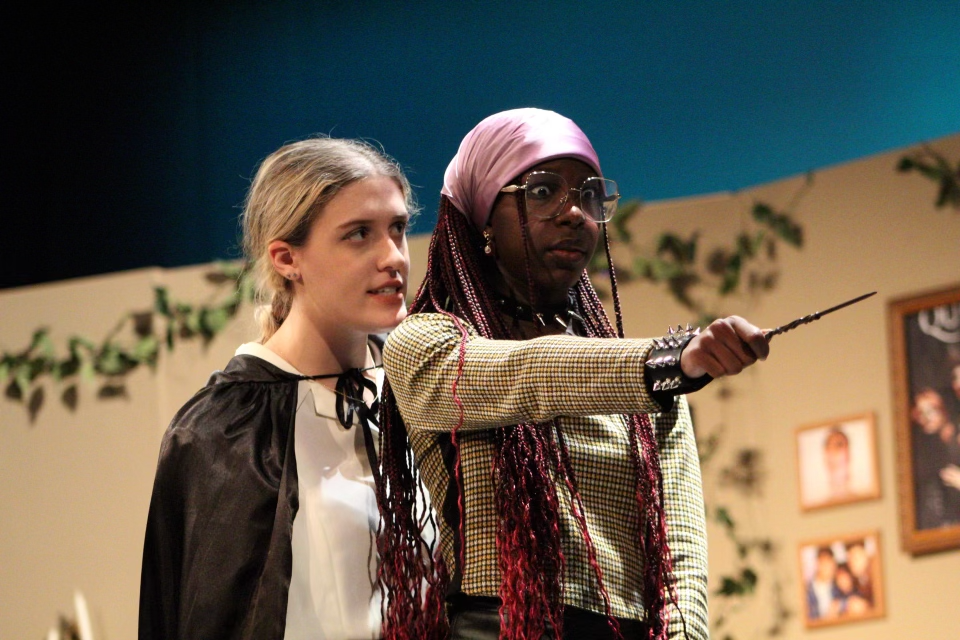
Anonymous • Jan 31, 2018 at 10:11 pm
5
Anonymous • Jan 31, 2018 at 2:24 pm
4.5